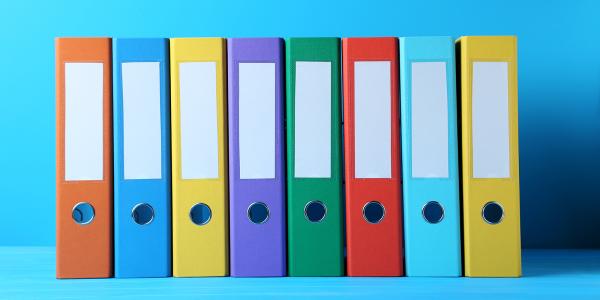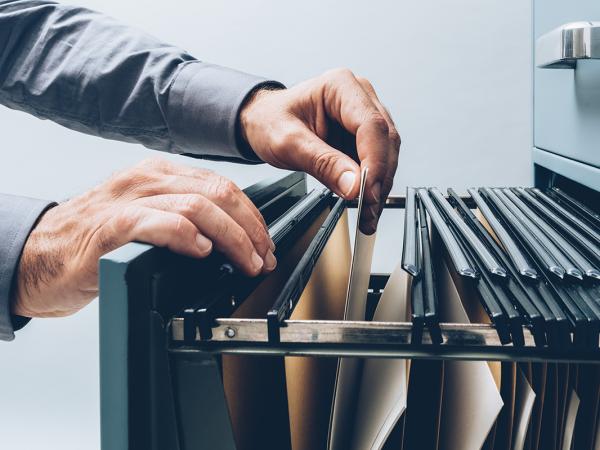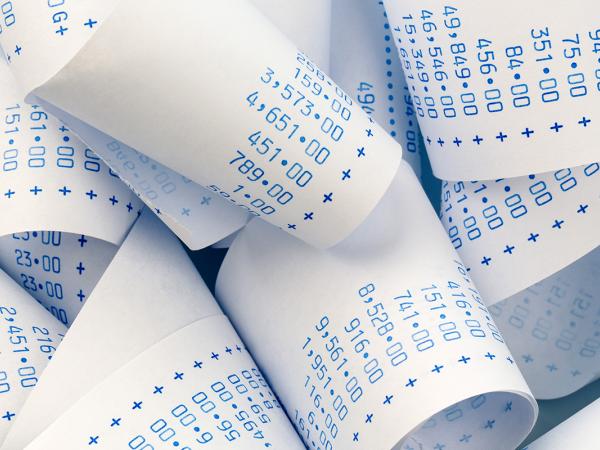Business record keeping
If you are self-employed or a partner in a partnership, then you must keep adequate records of your business income and expenses in order to prepare an accurate self assessment tax return. This page explains what business records are and how long you need to keep them.

Content on this page:
Types of business records
As well as maintaining any records you need for other types of income, if you are in business as a self-employed sole trader or partner in a partnership (including property letting businesses) you need to keep some additional records for your business. You can keep your records on a computer, but you should ensure that you can always access these records if, for example, you upgrade your computer or software.
We cover what business records you may need to keep to comply with Making Tax Digital for Income Tax (MTD) on our dedicated MTD page.
It is important you keep your personal records separate from those for your businessas far as possible. This is so that if HM Revenue & Customs (HMRC) ask to see your business records, they are separate from details of your personal income and expenditure.
Although the accounting records a business needs to keep will vary depending on the size and nature of the business, a general guide would be that a business should aim to do the following:
- Record all sales and other business income and retain the records, for example, invoices, bank statements and paying-in slips
- Record all purchases and other business expenses as they arise and ensure, unless the amounts are very small that you keep invoices and receipts
- Keep a record of all purchases and sales of assets, such as capital equipment, which are used in your business
- Record all amounts taken out of the business bank account, from cash or stock, for your own personal use
- Record all amounts paid into the business from your own personal funds – for example, paying for stock with your personal credit card
- If you are claiming mileage allowance for business trips, you must record details of the journey, such as date, number of miles travelled, destination and purpose of the business trip
You need to set up a system for keeping your accounting records. You should at the very least have a cash book (for example a manual cash book or a spreadsheet) – this should record payments to and from your bank, cash receipts and payments and any amounts you take out of the business. You may also want to keep a separate record book for your day-to-day small cash transactions – a petty cash book.
Some specific examples of records you should keep, depending on the type and size of your business, include:
- If you use your own home for your business, you need to allocate running costs between private and business use (unless you are using the simplified expenses flat rate)
- A record of all your own or your family's personal drawings from the business. This is money that your family or you take from the business bank account or petty cash for your own purposes
- Details of any hire purchase or leasing arrangements taken out (including rent agreements)
- Details of any money or assets, for example capital equipment, you introduce into your business
- Copies of business bank statements and building society passbooks and/or statements. If you do not have separate business and private accounts, you will need to keep an accurate record of which expenses are business and which are private
- Wage records where you have employees, or if you engage subcontractors you need to keep records to support any payments you make
- An inventory of any stock on hand (you may decide not to do this if you are using the cash basis)
- Unless you use your car or van specifically for the business only you will need to keep a record of business use to include both running costs and fuel (unless you use the simplified expenses for motor expenses)
Using the cash basis or simplified expenses
You still need to keep adequate business records regardless of whether you use the cash basis or the accruals basis and/or simplified expenses for preparing your accounts.
Using the trading allowance
If your trading income is wholly or partially exempt due to the trading allowance (also known as the trading income allowance), HMRC only require you to keep records of your income. However, it is a good idea to keep basic records of income and expenses even if you qualify for the trading allowance, as this will help you decide whether the trading allowance is beneficial to you as well as helping you monitor how your business is doing.
How long to keep business records for
If you are self-employed you need to keep your records for five years from 31 January following the tax year for which the tax return is made. So, for example for the 2023/24 tax return, the following 31 January will be 31 January 2025 – you must keep your records until 31 January 2030.
However, in some cases you may need to keep the records longer than the above time limit, for example where there is an ongoing investigation by HMRC you will need to keep your records until the end of the enquiry; also, if you have submitted your tax returns late you need to keep your records longer.
Self-employment income support scheme (SEISS) grants
If you received a grant under the self-employment income support scheme (SEISS) to help support your business through the coronavirus pandemic, then you should keep additional records detailing the reasons why you were eligible for the grant as part of your business records. We cover this in more detail on our dedicated SEISS page.
Penalties for inadequate records
HMRC may charge a penalty of up to £3,000 per tax year for a failure to keep records or for keeping inadequate records. However, if HMRC identify a failing in record keeping this will often go hand in hand with an under-declaration of profit. HMRC are then most likely to charge penalties (as well as interest on late payment) in respect of any additional tax and National Insurance contributions that become due as a consequence of correcting the under-declaration of profit.
If no business records are kept at all it is very likely that a penalty would be incurred for failing to keep records, in addition to any other penalties HMRC may apply.
If you think you are likely to be charged a penalty by HMRC you should consider seeking help from a professional adviser such as a Chartered Tax Adviser or from the tax charity, TaxAid which gives free tax advice to those on low incomes.
More information
Our guide to self-employment is intended to supplement the material in this section. We wrote this guide to help advisers (non-tax) who advise low-income self-employed individuals and for self-employed people who want more detailed information in one accessible place. The guide explains the less common tax rules and contains more detailed information including a case study showing how to prepare accounts based on the business records you have kept and what to include on your 2023/24 tax return.
GOV.UK has information on what business records you should keep and keeping business records if you claim the trading allowance.



